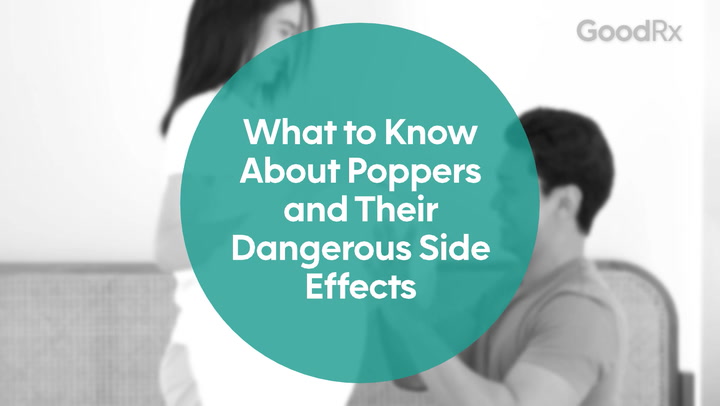What Are the Effects of Mixing Cocaine and Alcohol?
Key takeaways:
Alcohol has a depressant effect that slows down the body and brain messaging.
Cocaine is a stimulant that speeds things up, increasing heart rate, blood pressure, and body temperature.
People sometimes use alcohol and cocaine together to enhance their intoxicating effects or to reduce unwanted side effects.
Using these substances together puts you at higher risk of dangerous complications, including alcohol poisoning, overdose, and heart-related issues.
Cocaine and alcohol differ in terms of availability, legality, and perceptions of safety. In the U.S., alcohol is legal for people 21 years old and up and is widely available across the country. While most professional organizations make clear that no amount of alcohol is safe to drink, millions of adults across the world drink it.
Cocaine, on the other hand, is an illegal drug that’s known for being highly habit forming. And sometimes people mix cocaine and alcohol, which can lead to unpredictable and dangerous effects.
Cocaine vs. alcohol: How do they affect the body and mind?
Cocaine and alcohol are different types of drugs with unique effects on the body and mind. These substances affect people in unique ways. Let’s take a closer look at how each substance can change how you feel, think, and act.
Search and compare options
What does alcohol do to the body and brain?
Alcohol affects people differently, but most adults are familiar with its short-term effects. More than 8 in 10 adults in the U.S. have drank alcohol at some point in their lives.
Alcohol is classified as a depressant because it slows down brain messaging. And the effects on the communication patterns in your brain happen quickly. Drinking even small amounts of alcohol can lead to:
Slurred and slowed speech
Slower reaction times
Balance issues, including trouble standing or walking
Impaired decision-making and impulse control
The effects of intoxication lessen with time, but alcohol stays in the body much longer. And there can be long-term effects of alcohol use.
Large amounts of alcohol can lead to alcohol poisoning or overdose. So get medical attention right away if you notice these signs or symptoms:
Passing out
Vomiting
Slow or irregular breathing or heart rate
Lower body temperature and turning blue or pale
Read more like this
Explore these related articles, suggested for readers like you.
How does cocaine affect the mind and body?
Cocaine is a powerful stimulant drug that speeds up the messaging between the brain and the body. For example, cocaine changes the amount and movement of dopamine in your body.
Dopamine is a chemical in the brain (a neurotransmitter) that sends messages between different brain cells. It plays a role in emotions, pleasure, and motivation. Cocaine can cause a surge of dopamine in the brian. In small amounts, this is why people may feel:
Euphoric and energetic
Talkative
Alert
Sensitive to sight, sound, and touch
A higher body temperature
Using large amounts of cocaine can heighten these effects and increase the chances of:
Restlessness
Anxiety and panic
Irritability and anger
Paranoia
Higher heart rate and blood pressure
Cocaine is an addictive substance that can cause serious medical problems, including heart attack, seizure, and stroke. Beyond the immediate risk of overdose, repeated use of cocaine can lead to impaired brain function and other long-term effects.
Quiz: Am I an alcoholic?
Why do people mix alcohol and cocaine use?
People use and misuse substances for different reasons, so it’s hard to say exactly why some mix alcohol and cocaine use. Research suggests that more than half of people who use cocaine also drink alcohol. And 50% to 90% of people who are dependent on cocaine are also dependent on alcohol.
There are a few reasons some people may use alcohol and cocaine together:
To get a more powerful effect: Using both substances together can create a longer and more intoxicating effect. When someone mixes alcohol and cocaine, their body creates cocaethylene — a psychoactive substance that acts similar to cocaine.
To feel less intoxicated: Cocaine can mask the intoxicating effects of alcohol. So someone may still feel alert and coordinated, despite having a high blood alcohol level. Likewise, alcohol may allow a person to consume more cocaine without feeling as high.
To lessen withdrawal: When the effects of cocaine wear off, a person may feel restless, irritable, and uncomfortable and choose to drink alcohol as a way to manage those symptoms.
Cocaine is a stimulant that speeds you up, and alcohol is a depressant drug that slows you down. So, some people think that using them at the same time balances things out. But substances are more complex than that. And things can get even more complex when you mix them. Combining stimulants and depressants can lead to underpredicatable effects.
What are the risks of combining alcohol and cocaine?
There are significant risks linked to using alcohol and cocaine together. These risks could affect your short-term and long-term physical and mental health.
Physical health effects of cocaine and alcohol
Using cocaine with alcohol together can make it hard to tell how intoxicated you are. Stimulants can mask the feelings of alcohol intoxication, so you may drink more than you mean to. This can lead to alcohol poisoning and other dangerous consequences.
Mixing two substances can create unpredictable effects and poses a greater risk to your physical health. Combining alcohol and cocaine can lead to:
Increased or irregular heart rate
Higher blood pressure
Slowed breathing
Dehydration
What is cocaethylene?
Cocaethylene is partly responsible for the dangerous effects of mixing cocaine and alcohol. The body creates this toxic chemical when cocaine and alcohol mix. This chemical shares many of the same properties as cocaine, and it can intensify and prolong the effects of cocaine. But cocaethylene stays in the body for longer and is even more toxic for the heart and liver.
Mental health effects of using alcohol and cocaine together
Using alcohol and cocaine together creates a powerfully negative effect on physical and mental health. This could be why alcohol and cocaine is the drug combination that results in the most drug-related deaths.
Researchers have found a connection between alcohol, cocaine, and suicide. When people have higher blood alcohol levels and cocaine in their system, they have a higher likelihood of self-harm.
Alcohol has also been associated with violent behavior, and mixing it with cocaine may play a role as well.
Additionally, using alcohol could increase the risk of cocaine relapse in people recovering from a cocaine use disorder. Using alcohol after stopping cocaine could create strong cravings for cocaine, even after months of sobriety from the stimulant drug.
How to treat an addiction to cocaine and alcohol use
Any addiction treatment is challenging. And when two or more substances are at play — like cocaine and alcohol — the situation can get more complex. The best treatments focus on addressing all substances you misuse as well as any underlying mental health issues that drive your substance use.
A great first step is to know the signs of cocaine and alcohol misuse. Then contact a trusted addiction treatment center for an evaluation of the level of substance use. From there, they can help figure out if you need a period of inpatient detoxification, residential rehab, or outpatient care.
Alcohol and cocaine use can lead to some dangerous effects during and after use. So trying to detox at home or treating your own symptoms is never recommended. Always get care and support from trained and experienced addiction professionals to help deal with withdrawal symptoms.
The bottom line
Mixing substances like cocaine and alcohol can lead to unpredictable and dangerous effects. Taking a stimulant like cocaine along with a depressant like alcohol doesn’t cancel or balance out their effects. One substance can mask the effects of the other, making it hard to tell how they’re affecting you. And this can increase the chances of taking dangerous amounts.
Why trust our experts?


If you or someone you know struggles with substance use, help is available. Call SAMHSA’s National Helpline at 1-800-662-HELP (4357) to learn about resources in your area.
References
Amsterdam, J., et al. (2023). Combined use of cocaine and alcohol: A violent cocktail? A systematic review. Journal of Forensic and Legal Medicine.
Andrews, P. (1997). Cocaethylene toxicity. Journal of Addictive Diseases.
Bailey, J., et al. (2021). Alcohol and cocaine use prior to suspected suicide: Insights from toxicology. Drug and Alcohol Review.
Centers for Disease Control and Prevention. (2022). Polysubstance use facts.
Lacoste, J., et al. (2010). Cocaine and alcohol: A risky association. Presse Medicale.
Liu, Y., et al. (2018). The importance of considering polysubstance use: Lessons from cocaine research. Drug and Alcohol Dependence.
National Institute on Alcohol Abuse and Alcoholism. (2022). Alcohol and the brain: An overview.
National Institute on Alcohol Abuse and Alcoholism. (2023). Alcohol use in the United States: Age groups and demographic characteristics.
National Institute on Drug Abuse. (2020). Principles of effective treatment. Principles of Drug Addiction Treatment: A Research-Based Guide.
National Institute on Drug Abuse. (2024). Cocaine.
New York City Department of Health and Mental Hygiene. (n.d.). Cocaine abuse & addiction.
Pennings, E. J. M., et al. (2002). Effects of concurrent use of alcohol and cocaine. Addiction.
Pergolizzi, J. V., et al. (2021). Cocaine and cardiotoxicity: A literature review. Cureus.
Pergolizzi, J. V., et al. (2022). Cocaethylene: When cocaine and alcohol are taken together. Cureus.
Richards, J. R., et al. (2023). Cocaine toxicity. StatPearls.
Shastry S., et al. (2023). Cocaethylene cardiotoxicity in emergency department patients with acute drug overdose. Academic Emergency Medicine.
Spronk, D. B., et al. (2013). Characterizing the cognitive effects of cocaine: A comprehensive review. Neuroscience & Biobehavioral Reviews.
U.S. Drug Enforcement Administration. (2022). Cocaine.
World Health Organization. (n.d.). Global information system on alcohol and health.




























